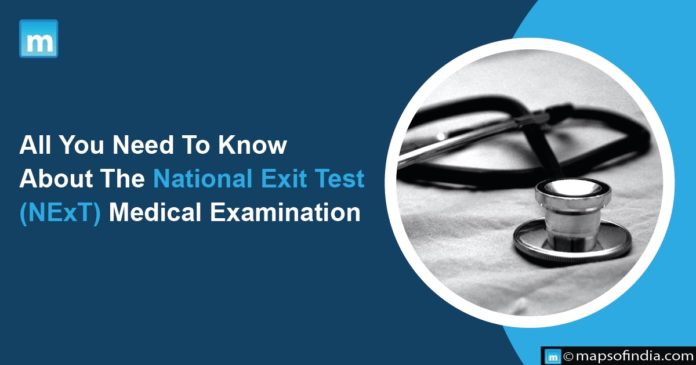The National Medical Commission (NMC) conducts the National Exit Test (NExT). The commission proposed a draft for regulating the test, a medical licensing exam. This test is designed to assess the competency of medical graduates. Overseas students, as well as students who have received their medical degrees from NMC-approved medical institutions, both, have to qualify for the National Exit Test.
A person must pass the NExT to register for medical practice in India. Admissions in postgraduate courses are based on a candidate’s merit in NExT. According to the National Medical Commission Bill 2019, NExT will also function as a screening test for foreign medical graduates who now need to qualify under the Medical Council of India Screening Test and for postgraduate medical courses. The Ministry of Health and Family Welfare also introduced the draft National Dental Commission Bill in January 2020, which called for NEXT after BDS for dentists in India.
The objective of the test
- NExT aims to ensure that all doctors have a minimum level of knowledge and competency by improving India’s healthcare quality.
- To provide consistency nationwide in the summative evaluation by delivering training for a medical graduate with minimum common education standards.
Who can apply for the exam?
Any final-year student who has pursued a medical degree either from Indian University or abroad, or those who seek admission to Postgraduate medical courses, can apply for the exam. The exam is valid for all medical institutes, including AIIMS.
Who conducts the exams?
The National Medical Commission is the implementing body, whereas the exam is conducted by the National Board of Examination.
National Medical Commission
National Medical Commission (NMC) is India’s medical regulatory agency regulating medical education and professionals. The commission gives accreditation to medical schools, grants recognition of medical qualifications, monitors medical practice and assesses the medical infrastructure, and grants registration to medical practitioners in India.
The mission of the commission
- The commission aims at improving access to affordable and quality medical education.
- To ensure the availability of high-quality and adequate medical professionals access to all the citizens.
- The commission also promotes universal and equitable healthcare that makes professional medical services accessible to all citizens and encourages a community health perspective.
- Encourages medical professionals to contribute to medical research.
- It also conducts inspections of medical colleges to ensure that medical standards are maintained.
- It functions to enforce high ethical standards in medical services.
- It also maintains a medical register for India.
Boards coming under the Commission
Four autonomous boards are coming under the commission-
- Under-Graduate Medical Education Board (UGMEB)
- Postgraduate Medical Education Board (PGMEB)
- Medical Assessment and Rating Board
- Ethics and Medical Registration Board




